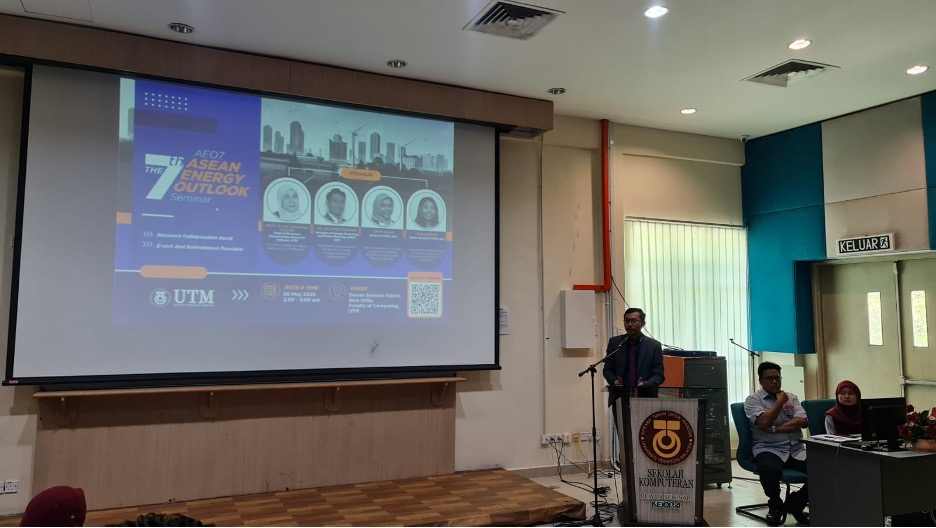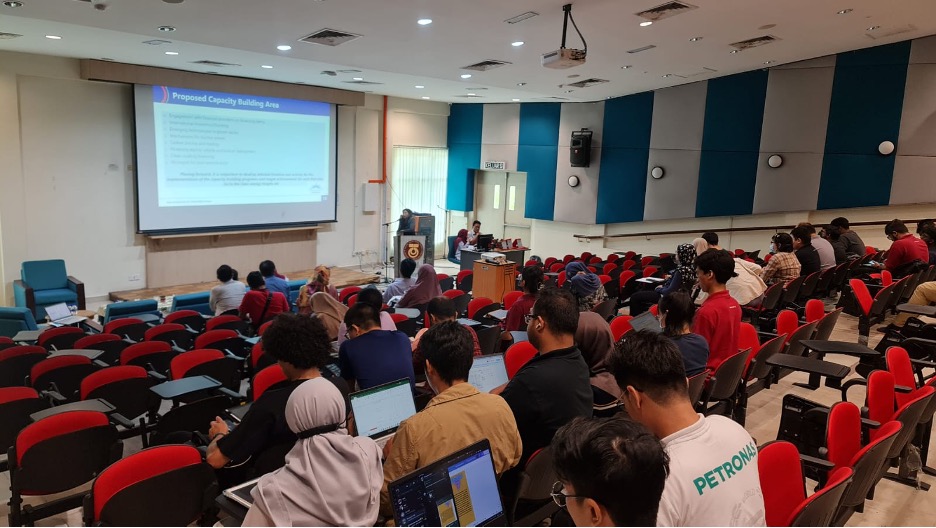Menu

Photo 1. Dr Zulfikar Yurnaidi, Manager at ACE, gives his welcoming remarks to UTM lecturers and students
Continuing the last dissemination on the 7th ASEAN Energy Outlook (AEO7) in Malaysia, the ASEAN Centre for Energy (ACE) visited the Universiti Teknologi Malaysia (UTM), Johor Bahru, on 30 May 2023.
Since the AEO7 was launched in 2022, ACE has kept disseminating its flagship report to the ASEAN communities, which aimed to improve the ownership of member states on the AEO7. This event also introduced ACE’s recent study on regional investment for energy transition, which enriched the AEO7 findings.
To open the scene-setting, Prof. Haslenda Hashim from UTM presented Current Energy Situation and Policy in Malaysia. Following that, Dr Zulfikar Yurnaidi, Manager of Energy Modelling and Policy Planning (MPP) from ACE, introduced the ASEAN Energy Outlook (AEO) as ACE’s flagship report and modelling tool for monitoring and projecting the ASEAN Plan of Action Energy Cooperation (APAEC) targets. He explained the various scenarios and analyses performed in AEO7, including technology deployments in the energy sector.
Ms Amira Bilqis, an Analyst of MPP, further explained the research findings of the AEO7. She highlighted that the regional energy demand will triple by 2050 from 2020 levels in the Baseline Scenario. With continuous utilisation of fossil fuels, the AEO7 found that ASEAN would become the net importer of natural gas and coal by 2025 and 2039, respectively. During her presentation, Ms Amira also emphasised how green job creation findings would be a good reference for educational institutions to enhance their curriculum and for students to learn relevant future skills.

Photo 2. Ms Rika Safrina presents the study’s findings on ASEAN energy investment
In the next agenda, Ms Rika Safrina, Senior Analyst of MPP of ACE, disclosed ACE’s recent study on ASEAN energy investments, supported by the Energy Foundation China. According to the AEO7, the total required investment from 2021 to 2050 in the power sector alone is USD 1,070 billion under the Baseline Scenario, but the region has limited public finance, which dominates its current financial source of clean energy investment. The ASEAN member states have made different progress in clean energy investment, thereby, the study proposed a Roadmap to determine the most concerning issue in their capacity-building programmes for each country.
At last, the forum successfully facilitated insightful discussions between UTM lecturers and students with ACE, not only in terms of public policy but also on the technical side of energy modelling and optimisation. Moreover, this dissemination hopefully will bring close cooperation between ACE and UTM for future joint studies following the MoU signing between the two institutions in 2022.
